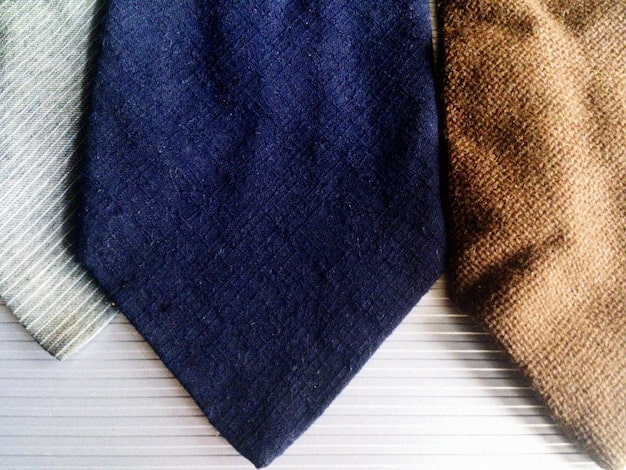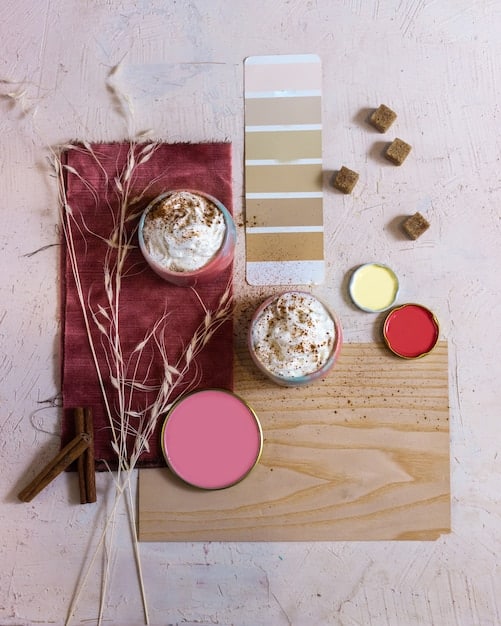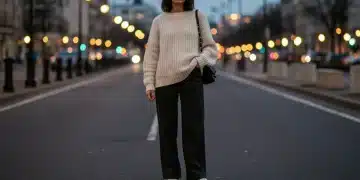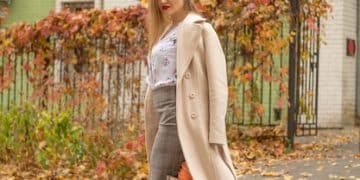Fall 2025 Layering: The Ultimate Guide to Transitional Dressing

Fall 2025 layering strategies offer a versatile approach to transitional dressing, enabling individuals to adapt their style seamlessly amidst fluctuating temperatures by combining lightweight and heavier pieces for both comfort and elevated style.
Navigating the shift in seasons doesn’t have to mean sacrificing style for comfort. The secret to staying chic and cozy lies in mastering the art of layering. This Fall 2025, embrace the versatility of transitional dressing with our comprehensive guide to Fall 2025 layering strategies.
Fall 2025 Layering Essentials: Building Your Wardrobe Foundation
A successful layered look begins with a well-curated wardrobe of versatile pieces. These are the foundational garments that can be mixed and matched to create a variety of stylish and comfortable outfits suitable for the unpredictable weather of fall.
Base Layers: Comfort is Key
Start with lightweight, breathable base layers like fitted long-sleeved tees, thin turtlenecks, or even silk camisoles. These pieces will wick away moisture and keep you comfortable as temperatures fluctuate throughout the day.
Mid Layers: Adding Warmth and Texture
Mid-layers provide insulation and allow you to adjust your warmth level as needed. Think cozy sweaters, cardigans, denim jackets, or lightweight fleece pullovers for added warmth and texture.
- Cashmere Sweaters: A luxurious and warm option that can be dressed up or down.
- Denim Jackets: A classic and versatile piece that adds a touch of casual cool.
- Cardigans: Easy to layer and unlayer, offering a customizable level of warmth.

Selecting the right layering essentials can transform your fall style, providing both comfort and fashion-forward looks. It ensures you’re prepared for any weather while staying true to your personal style.
Outerwear Options: The Finishing Touch
Outerwear is not just about protection from the elements; it’s a statement piece that completes your layered look. Choosing the right outerwear can elevate your entire outfit and add a touch of personality.
A trench coat is a classic choice that adds a touch of sophistication to any outfit. Look for a style in a neutral color like khaki, black, or navy for maximum versatility. Alternatively, a bomber jacket offers a more casual and edgy vibe.
Versatile Outerwear Pieces
Consider a quilted vest, which can be worn over sweaters or under jackets for added warmth. Leather jackets are another stylish option that can be dressed up or down, depending on the occasion.
- Trench Coats: Timeless and elegant, perfect for a polished look.
- Bomber Jackets: Casual and cool, ideal for everyday wear.
- Quilted Vests: Lightweight and versatile, adding warmth without bulk.
The right outerwear can make all the difference, providing both functional protection and a stylish statement that complements your entire layered ensemble.
Accessorizing for Impact: Scarves, Hats, and Gloves
Accessories are the unsung heroes of a layered outfit. They not only provide extra warmth but also add personality and visual interest to your look. Don’t underestimate the power of a well-chosen scarf, hat, or pair of gloves.
Scarves are a great way to add color and texture to your outfit. Experiment with different materials like silk, wool, or cashmere. Hats can keep you warm and add a touch of style, whether it’s a beanie, fedora, or beret.
Adding Personal Flair
Gloves are a practical accessory that can also be fashionable. Choose a pair in leather, suede, or a knit material that complements your outerwear.
- Scarves: Add color, texture, and warmth to your neck area.
- Hats: Keep your head warm and add a stylish touch.
- Gloves: Protect your hands from the cold while enhancing your look.
Thoughtful accessories can elevate your layered look, providing warmth, style, and a personalized touch that sets you apart.
Color Palettes and Textural Combinations
Creating a visually appealing layered outfit involves playing with color palettes and textural combinations. Understanding how to balance these elements can make your outfit stand out.
Harmonious Color Schemes
Consider a monochromatic color scheme for a sophisticated and streamlined look. Alternatively, experiment with complementary colors for a bolder and more eye-catching outfit.
Mixing Textures
Texture is just as important as color. Combine different materials like knitwear, leather, denim, and silk to add depth and visual interest to your layered look.

Skillful use of color and texture can transform a simple layered outfit into a fashion statement, adding depth and character to your overall appearance.
Layering for Different Occasions: From Casual to Formal
Layering is not just for everyday wear; it can also be adapted for different occasions, from casual outings to more formal events. The key is to choose the right pieces and combine them in a way that is appropriate for the setting.
For a casual weekend look, pair a simple t-shirt with a denim jacket, a cozy cardigan, and comfortable jeans. Add a beanie and sneakers for a relaxed vibe.
Elevating Your Look
For a more formal occasion, layer a silk blouse under a blazer, paired with tailored pants or a skirt. Accessorize with a statement necklace and heels for a polished and sophisticated look.
- Casual Outing: T-shirt, denim jacket, cardigan, jeans, beanie, sneakers.
- Formal Event: Silk blouse, blazer, tailored pants/skirt, statement necklace, heels.
Adapting layering techniques to suit different occasions allows you to stay stylish and comfortable while maintaining the appropriate level of formality and sophistication.
Common Layering Mistakes to Avoid
While layering can be a powerful tool for creating stylish outfits, there are some common mistakes to avoid. Being aware of these pitfalls can help you create more polished and effective layered looks.
Avoiding Bulkiness
One of the biggest mistakes is wearing too many bulky layers, which can make you look larger than you are. Stick to lightweight, breathable fabrics and avoid oversized garments.
Proper Proportions
Another common mistake is failing to consider proportions. Make sure your layers are balanced and that your outfit is flattering to your body shape. Avoid wearing too many long layers, which can overwhelm your figure.
By avoiding these common pitfalls, you can create layered outfits that are both stylish and flattering, enhancing your overall appearance with well-considered and balanced combinations.
| Key Point | Brief Description |
|---|---|
| 🧣 Base Layers | Lightweight fabrics for comfort. |
| 🧥 Mid Layers | Sweaters and jackets for versatile warmth. |
| 🧤 Accessories | Scarves, hats, and gloves add style. |
| 🎨 Color & Texture | Combinations create visual interest. |
Frequently Asked Questions
▼
Essential base layers include lightweight, breathable fabrics like fitted long-sleeved tees, thin turtlenecks, and silk camisoles. These help wick away moisture and regulate body temperature for optimal comfort throughout the day.
▼
Incorporate textures by combining different materials like knitwear, leather, denim, and silk. Mixing these various textures adds depth and visual interest to your overall layered look, creating a more dynamic outfit.
▼
When choosing outerwear, consider pieces that are versatile and can complement various outfits. Trench coats provide sophistication, while bomber jackets offer a casual vibe. Quilted vests are lightweight additions for extra warmth.
▼
To avoid looking bulky, opt for lightweight and breathable fabrics, avoiding oversized garments. Ensure that layers are balanced and proportions are flattering. Too many long layers can overwhelm, so strive for balanced silhouettes.
▼
Essential accessories include scarves, hats, and gloves. Scarves add color and warmth, hats keep your head cozy, and gloves protect your hands from the cold. Choose accessories that add personality and visual interest to your look.
Conclusion
Mastering the art of Fall 2025 layering strategies allows for endless creativity and adaptability in your wardrobe. By understanding the essentials of base layers, outerwear, accessories, and color palettes, you can create stylish and comfortable outfits that transition seamlessly through the changing seasons. Embrace these techniques to elevate your fall fashion game.





